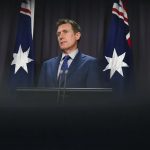Towards a democratic Iran

In a build-up of religious fervour, Ayatollah Khomeini and his supporters railed against the Iranian monarchy in 1979, claiming that the Shah and the Western values he embraced were responsible for the plight of people in Iran. They had their own stories about the fundamental ingredients of human values and promised that they would bring democracy, freedom and prosperity to Iran.
The clerical regime did create a new system, but one dictatorship was merely swapped for another. After four decades the Islamic Republic has made itself an international pariah, suppressing its citizens and driving millions of people into exile. Corruption and economic mismanagement have also led to unemployment, a high cost of living and hyper-inflation that runs around 50%.
In consequence, most Iranians feel that the era of hopeful times has gone, and things no longer look promising. Young people take themselves to the streets, calling for regime change, and regime change serves as a term when protests and revolts have spread like wildfire in all major cities. They reject the theocratic state of Iran that their parents and grandparents brought about it nearly 44 years ago.
The fact is over 60% of Iran´s 80 million citizens are under the age of 30. They literally do not know about the Shah and Khomeini, nor care they much about the complexity of Iranian political opposition groups and their agenda; they tend to have a civil society networks, which instructs them on the process of revolution and link 10 million Iranian diaspora in Western countries to 80 million inside the country; and they want to be part of a secular and democratic world.
Like any other nation, young Iranians want to live a life in a secular and democratic world where the government does not interfere with every aspect of their lives and makes decisions for them. They want to be free from state restriction in terms thinking, wearing, writing, and generally, everything we now consider as basic human rights.
Out of this reality, a love-hate relationship between the Western countries and Iran has developed for decades. Let’s take a look at a few examples to understand the complexity of Iran´s relation with the West. Two decades ago, we saw a wave of public frustration and dissatisfaction across Iran, when diplomacy and reform had advanced across the Western world.
The Swedish Nobel committee, for example, awarded Peace Prize to an Iranian activist for her efforts promoting democracy and human rights in Iran. But the idea of promoting democracy and reforming the clerical regime is a pure fiction. That means Iran has lost its legitimacy decades ago, and there is no room for reform or negotiation. Even the Green Movement that emerged after the 2009 elections was unable to withstand the complexity of power struggle inside the government and failed.
Negotiations over Iran’s nuclear deal had progressed for the Obama administration to support the Green Movement and to ease the sanctions on Iran. But the good intention of his policy has produced undesirable results, when the Islamic Republic spent billions of petro-dollars on proxies in Syria, Iraq, Lebanon, Yemen and Gaza. At the same time, millions of ordinary Iranians have struggled to feed themselves.
By 2019, more hostilities played out in the shadow war, and the fiction of liberating Jerusalem got loader and loader. Iran has been deploying militias, money and arms to aid allies on three of Israel’s borders –Lebanon, Syria and Gaza. The wave of anti-Israel sentiment across the region has formally handed to the Iranian Quds Force that is a branch of the Islamic Revolution Guards Corps (IRGC), operating outside Iran.
This armed troops that had General Qassem Soleimani as commander is not even considered as a terrorist organization to many democratic nations including the EU. Debates over placing the IRGC on the terror list just stated recently. Nevertheless, the IRGC has never been as close to Iraq, Syria, Lebanon, Gaza and Sudan as it is now, spreading all sorts of anti-Israeli sentiments, including liberation of Jerusalem and other fictional stories.
In recent decades, the geopolitics of Iran and the Middle has undergone a significant transformation. Iranian authorities not only set up an Islamic state in Iran but also claimed to export the revolution to other countries such as Iraq, Syria, Afghanistan, Yemen, Sudan, Lebanon and Palestine. Iran has come with an enamours amount of hostility in its relations with the United States, Israel, Saudi Arabia, which became the main feature of Iran’s foreign policy in recent decades.
However, Iran began to drop its ideological tensions with Russia and China since the early 1990s, and in recent years Iran became one of the strategic partners of Russia and China. Part of the reason is decades of economic crisis and mismanagement pushed Iran to a state of near-to-collapse, and the country desperately needs Russia and China to stay alive.
Today, very few Iranians argue that the United States, Europe and the UN have no significant role to play, because they are the defenders of democracy and human rights. The aspiration of Iranian youth for human rights and democratic values has never been so close to the Western world now than any time in recorded history. But old generation of Iranians Americans or Europeans may not stay away the differences between Iran and the West – their philosophies, their religions and their way of life.
Nevertheless, we should remember that new generation of Iranians do have far more common interests with the West and the foremost among them is the idea of women rights, children rights and separation of religion and state. Any civil-minded person should reflect that a democratic Iran will end all these hostilities and paradoxes across the Middle East and will normalize the relations between Iran and the United States, Israel and Saudi Arabia. A surge of tourists and foreign investments in an eye-opening in its scale will be the reality of a democratic Iran in the future.
A democratic and inclusive Iran also means demilitarization of Syria, Lebanon, Yemen, Iraq and elsewhere. Above all, a democratic Iran can be the main source of energy supply to the European Union, replacing Russia. More striking is the fact that a democratic and inclusive Iran will reduce Russian aggression on Ukraine by stopping the export of military drones and missiles to Russia that have been used in war in Ukraine.
Alex is a member of Iran’s Movement, an educational platform promoting a secular and democratic Iran and supporting the voice of Iranian youth who want an inclusive, secular and democratic future.













